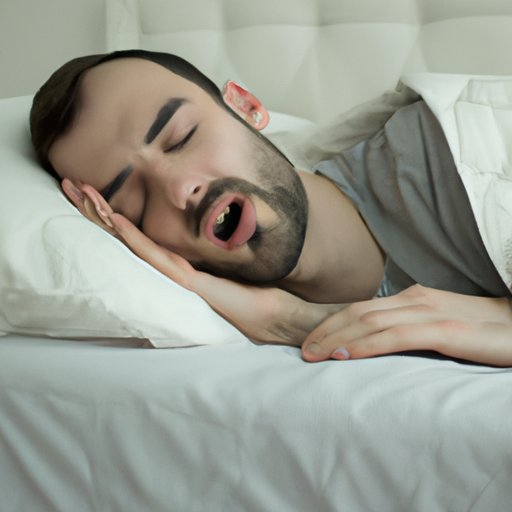
Introduction
Sleep is essential for maintaining good physical and mental health. Our bodies need sleep to function properly, and getting enough rest can help prevent a range of illnesses and health problems. Unfortunately, many people struggle with sleep deprivation, which can affect daily life in a number of ways. In this article, we will explore the effects of sleep deprivation on work performance, physical health, mental health, and overall quality of life. We will also provide tips for improving sleep hygiene to help readers get the rest they need.
How Sleep Deprivation Affects Daily Life
The effects of sleep deprivation on daily life can be significant. When we don’t get enough sleep, our productivity levels can suffer, making it hard to focus and accomplish tasks. Poor sleep can also lead to mood swings, including irritability, anger, and anxiety. Difficulty concentrating and memory impairment are also common symptoms of sleep deprivation, making it difficult to function properly at work, school, or in everyday life.
The Impact of Sleep Deprivation on Physical Health
Chronic sleep deprivation can lead to a range of physical health problems, including obesity, heart disease, and Type 2 diabetes. Poor sleep has also been linked to a weakened immune system, which can make it harder to fight off illness and disease. Over time, chronic sleep deprivation can lead to chronic sleep disorders, which can further impact physical health.
The Relationship Between Sleep Deprivation and Mental Health
Sleep deprivation can also have a significant impact on mental health. Poor sleep has been linked to depression, anxiety, and bipolar disorder. Lack of sleep can affect mood regulation and decision-making abilities, exacerbating symptoms of mental health disorders. It can also impact social and emotional functioning, making it harder to connect with others and form healthy relationships.
The Role of Technology in Causing Sleep Deprivation
The widespread use of technology, particularly smartphones and social media, has also contributed to sleep deprivation. Exposure to blue light emitted from screens can make it harder to fall asleep and can interfere with sleep quality. It is important for readers to reduce their technology use before bedtime to improve their rest.
Tips for Improving Sleep Hygiene
There are several things readers can do to improve their sleep hygiene and get the rest their bodies need. Establishing a regular sleep schedule can help regulate the body’s natural sleep-wake cycle, as can creating a soothing sleep environment that is dark and quiet. Avoiding caffeine and alcohol before bedtime can also help improve sleep quality, as can engaging in physical activity during the day. Relaxation techniques, such as deep breathing or meditation, can also help promote relaxation and better sleep.
Conclusion
Sleep is a crucial element of good physical and mental health. By understanding the effects of sleep deprivation and taking steps to improve their sleep hygiene, readers can make positive changes that will improve their quality of life. Prioritizing sleep and making small changes to daily habits can have a big impact on overall health and wellbeing.




